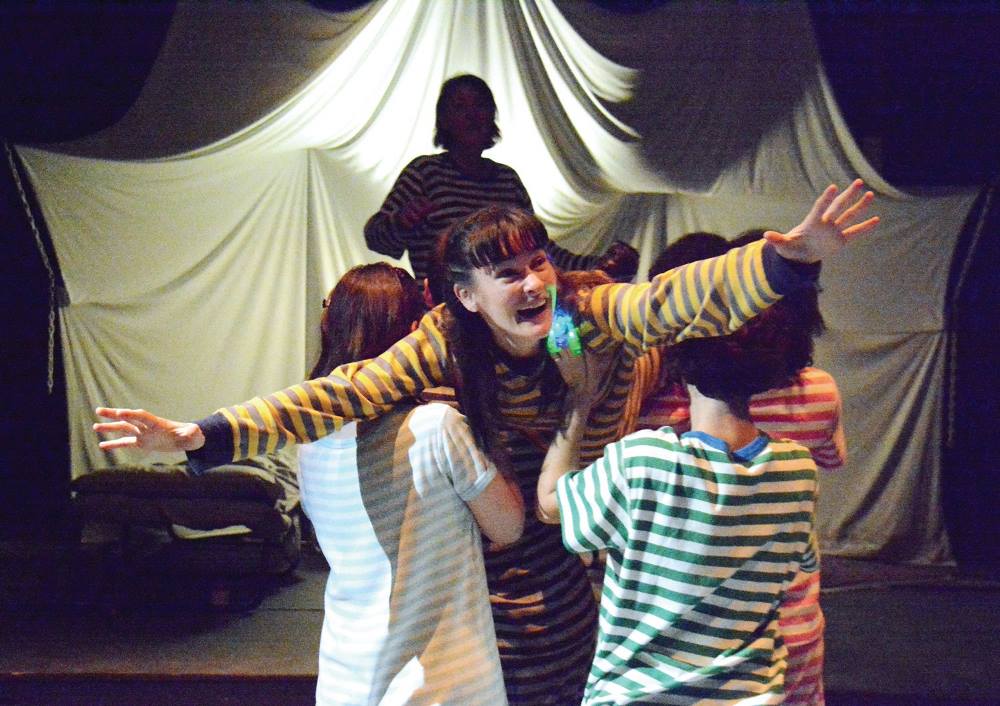SAN FRANCISCO: Some artists return to the same story over and over again. That’s certainly the case for director Jeremy Bloom and Peter/Wendy. “I feel like this is one of the main texts of my life,” says Bloom, referring to J.M. Barrie’s novel Peter Pan. Bloom’s Peter/Wendy draws on Barrie’s classic, along with the lesser-known prequel, The Little White Bird, and bows through Dec. 15 at San Francisco’s Custom Made Theatre Company.
The show has gone through several iterations over the years, beginning when Bloom was a student at Northwestern University studying with auteur Mary Zimmerman. “The casting has changed a lot—I did it with 30 people once,” says Bloom, noting that Custom Made’s show now features just seven actors and music by a group called the Books.
Bloom’s ongoing Peter/Wendy investigation is twofold. “One idea is that I want to essentialize the elements of the story to their psychology—it’s such a dark and beautiful story,” Bloom enthuses, elaborating on aspects of the original Peter Pan tale that Disney subsequently watered down. “At the end of the story Wendy attempts to fly home but her parents have forgotten her and she’s stuck in purgatory,” he notes.
Bloom also takes interest in “mitigating the colonialism and harsh portrayal of native culture in the story.” Indeed, many adaptations feature the Tiger Lily character in a less-than-politically-correct if not outright offensive manner. “That’s not a reason to put the story off limits,” Bloom avers (the Tiger Lily in his Peter/Wendy is an actual flower).
Bloom’s fanciful approach doesn’t stop there. In a production last spring at the Cell Theatre in New York City, Bloom and his team made use of a door that led to the street. “There’s this idea in Peter Pan that if you think of the happiest idea you will start to levitate—so we’d go up to people on the street during the show and ask them what their happiest thought was.” Responses from passersby, as well as friends and family solicited over e-mail, were scrawled all over the walls, and included things like “Christmas and ice cream,” “my dog Bonnie” and “finding a bathroom.”
Bloom plans to conduct a similar survey in San Francisco. “It turns out to be very meditative and interesting to accumulate the happy thoughts around you,” he says. “You wind up collecting this weird consciousness of the neighborhood.”


